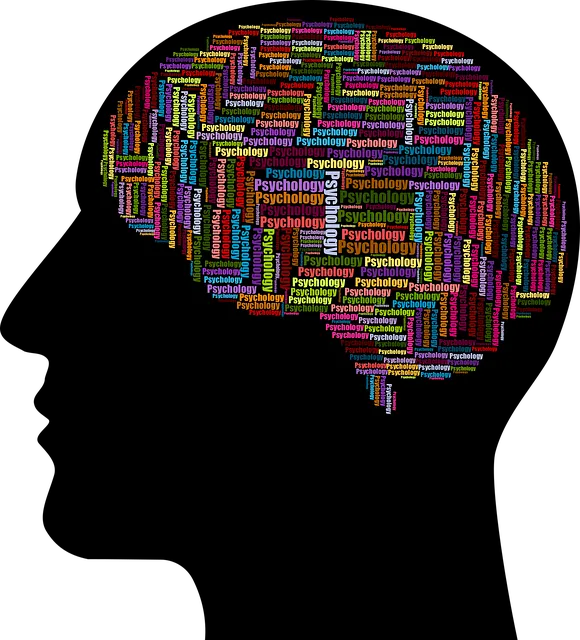The Wheat Ridge Kaiser Permanente mental health number addresses challenges in mental illness diagnosis by promoting a holistic approach that combines medical exams, patient self-reporting, and psychological assessments. Cultural sensitivity training for healthcare professionals, along with advanced AI-assisted diagnostic tools, enhances accuracy. Their multi-faceted strategy includes evidence-based assessment tools, mood management techniques, and stress reduction methods to improve patient outcomes. By integrating technology with best practices, Wheat Ridge Kaiser Permanente aims to revolutionize mental health diagnosis, offering personalized care through their dedicated mental health number while fostering community well-being.
Mental illness diagnosis accuracy is a critical aspect of patient care, with significant implications for treatment outcomes. This article explores current challenges in mental health assessment, highlighting the efforts made by Wheat Ridge Kaiser Permanente to enhance diagnostic accuracy. We delve into innovative tools and techniques, such as advanced data analytics and personalized approaches, that are revolutionizing mental health diagnostics. Additionally, we discuss the impact of these improvements and their potential future directions, focusing on the key role of organizations like Wheat Ridge Kaiser Permanente in the global mental health landscape.
- Understanding the Current Challenges in Mental Illness Diagnosis
- Kaiser Permanente Wheat Ridge's Approach to Enhancing Accuracy
- Innovative Tools and Techniques for Better Diagnosis
- The Impact and Future Directions for Improved Diagnosis Accuracy
Understanding the Current Challenges in Mental Illness Diagnosis

Mental illness diagnosis remains a complex field with numerous challenges impeding accuracy. One significant hurdle is the subjective nature of symptoms, which often vary widely among individuals experiencing similar disorders. This complexity necessitates a holistic approach, integrating medical examinations, patient self-reporting, and detailed psychological assessments for precise identification. Additionally, cultural and social factors can influence both the presentation and expression of mental health issues, demanding culturally sensitive diagnostic practices to avoid misidentification or missed diagnoses.
The current landscape in Wheat Ridge, Colorado, where Kaiser Permanente offers comprehensive mental health services, highlights these challenges. Accessing specialized care through their dedicated mental health number is a step towards improvement. However, ensuring accurate diagnosis requires ongoing training for healthcare professionals on the latest research and treatment methodologies, incorporating diverse patient perspectives, and integrating communication strategies that foster open dialogue about sensitive topics like trauma and resilience building.
Kaiser Permanente Wheat Ridge's Approach to Enhancing Accuracy

Wheat Ridge Kaiser Permanente has pioneered a comprehensive approach to enhancing mental health diagnosis accuracy. Their strategy involves a multi-faceted approach, encompassing advanced training for healthcare providers, implementation of evidence-based assessment tools, and fostering a culture of continuous improvement. By prioritizing these areas, Wheat Ridge Kaiser Permanente aims to improve patient outcomes and ensure more precise identification of mental health conditions.
The organization recognizes the importance of Mood Management, Self-Awareness Exercises, and Stress Reduction Methods in both diagnosis and treatment planning. Through specialized workshops and ongoing educational initiatives, healthcare professionals are equipped with the latest knowledge and skills to recognize subtle symptoms and nuances that can often be overlooked. This holistic approach not only enhances diagnostic accuracy but also empowers patients to take an active role in managing their mental well-being.
Innovative Tools and Techniques for Better Diagnosis

Mental health professionals are continually striving to improve diagnosis accuracy, utilizing innovative tools and techniques to enhance patient care at places like Wheat Ridge Kaiser Permanente mental health number. Advancements in technology, such as AI-assisted diagnostic platforms, offer promising solutions. These systems can analyze vast amounts of data, including medical history, symptoms, and even biological markers, to provide more precise and personalized diagnoses. For instance, machine learning algorithms can identify complex patterns indicative of specific mental health disorders, improving the accuracy of conditions like depression, anxiety, or PTSD.
Additionally, integrating evidence-based practices with these technological advancements is key. Mental Health Policy Analysis and Advocacy plays a crucial role in ensuring that healthcare providers have access to the latest research and guidelines, fostering a culture of continuous learning. By combining cutting-edge tools with comprehensive policy support and Self-Care Practices, mental health professionals can deliver more effective and efficient care, ultimately improving patient outcomes and overall well-being.
The Impact and Future Directions for Improved Diagnosis Accuracy

The pursuit of enhancing mental illness diagnosis accuracy is a multifaceted endeavor with profound implications for patient outcomes. In recent years, there has been a growing recognition of the limitations in traditional diagnostic methods and a push for more comprehensive approaches. Initiatives such as integrating advanced technology, like artificial intelligence tools, into clinical settings promise to revolutionize diagnosis by offering objective assessments and reducing reliance on subjective reports.
Looking ahead, future directions for improved diagnosis accuracy focus heavily on mental health education programs design that prioritize both cognitive and emotional regulation skills. By fostering mental health awareness, individuals can better recognize symptoms in themselves and others, facilitating earlier interventions. This proactive approach, coupled with accessible resources like the Wheat Ridge Kaiser Permanente mental health number, has the potential to significantly improve diagnostic accuracy and overall well-being within communities.
Mental illness diagnosis accuracy is a multifaceted issue that requires continuous improvement. As highlighted in this article, understanding current challenges, adopting innovative tools and techniques, and learning from successful models like Kaiser Permanente Wheat Ridge’s approach can significantly enhance diagnostic practices. By prioritizing these efforts, we can improve mental health outcomes for individuals seeking support from healthcare systems, ultimately reducing the number of misdiagnoses and improving access to appropriate care, as demonstrated by Kaiser Permanente Wheat Ridge’s promising results.






